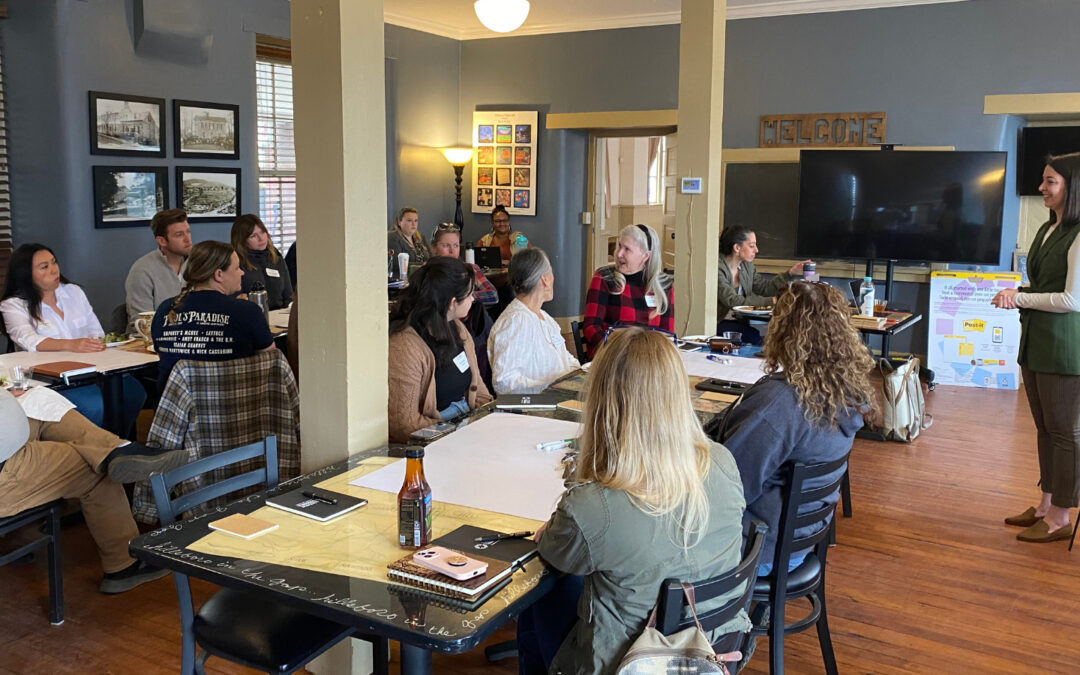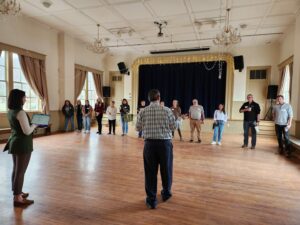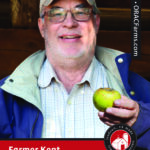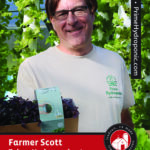In a charming classroom-style setting adorned with framed pictures of days gone by and wooden floors resonating with rich history, managers from several Loudoun farmers markets convened to discuss and collaborate on the future of their enterprises. Refreshments at the meeting were provided by Between the Hills Events, a Lovettsville catering company that uses local ingredients, and is owned by Alison Badger, the eclectic sous and sometimes baker, and her husband, Reid Badger, a 25-year chef and culinary maestro who brings all of the flavors together.
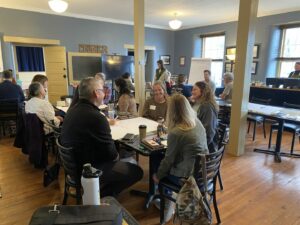
Participants engaged in conversations surrounding ideas, best practices, and lessons learned from being farmers market managers.
Led by Kim Bryden and Kelly Guglielmino of Cureate, a woman-owned and operated food-tech and business development consulting firm that focuses on building local/regional food and beverage supply systems, the cohort marked a significant milestone in the ongoing journey of understanding and improving local farmers markets. Having previously worked on capacity-building studies, the duo is now engaged in unraveling the intricacies of local food chains, fostered by a USDA grant and active communication with farmer market stakeholders.
The session kicked off as John Magistro, Loudoun Economic Development’s Agriculture Business Development Officer, expressed thanks and set the tone for a fruitful discussion. The overarching goals were clear: connect and understand the similarities and differences between markets, build awareness to attract new customers, and increase the number of Loudoun Made, Loudoun Grown (LMLG) suppliers.
The heart of the conversation revolved around engaging farmers markets on a regular basis. Magistro acknowledged the absence of such gatherings in the past and talked about the potential benefits of consistent collaboration. Reflecting on Loudoun Economic Development’s partnership with Cureate over the past two and a half years, Magistro highlighted the success of implementing recommendations and contemplating ways to further enhance the LMLG program.
Bryden began by echoing a commitment to redirect local dollars back into the community and discussed with the group, ways to adapt to changing consumer demands. The discussion delved into strategies for getting more local produce into larger institutions including Johns Hopkins, fostering a food systems approach for sustainable growth.
She engaged the group in various activities beginning with asking participants to take a moment to document their best market day experiences, creating a vivid snapshot of the sights, sounds, and emotions of those memorable days. This exercise facilitated the creation of market personas, emphasizing the unique atmosphere of each market and the importance of positive intent.
Further activities resulted in the group sharing successful initiatives and strategies such as reopening events, energetic market days, consumer experiences, fundraisers for good causes, and innovative activities like children’s entrepreneur day and participation in the Loudoun Farm Tours. Attendees discussed the effectiveness of different approaches, emphasizing the importance of measuring success and learning from less successful endeavors. They also discussed the importance of identifying vendor and customer personas to tailor marketing efforts effectively.
As the meeting concluded, Bryden compiled a list of action items, showcasing the participants’ commitment to positive change. Market mentorship programs, information on becoming a vendor, photography tours, and the Loudoun Farm Exchange were among the proposed initiatives.
The conversations continued after the meeting formally concluded, emphasizing the profound impact of collaborative efforts and the dedication of local market enthusiasts to create thriving, interconnected communities.
If you manage a farmers market and would like to be updated when these types of events take place, please contact John Magistro at john.magistro@loudoun.gov or Chris Blosser at chris.blosser@loudoun.gov.
To learn more about the Loudoun Made, Loudoun Grown program that is coordinated by Loudoun Economic Development, click here.

